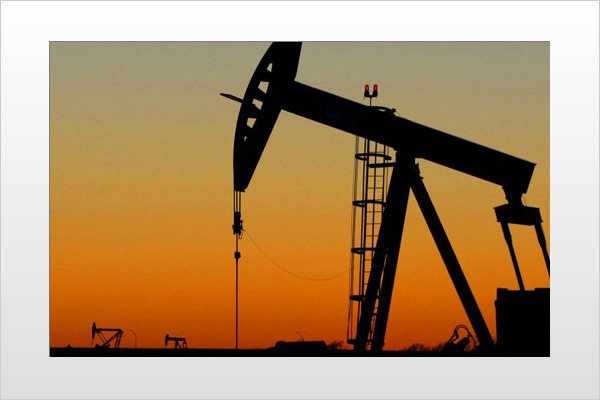
For nearly 100 years Americans have enjoyed inexpensive gas, diesel fuel and petroleum products. As recently as the 1990s, gas prices were below one dollar for a gallon. Now it seems, the prices are reaching new highs every week and the cost of a barrel of oil is over $60. This was unthinkably high only five years ago.
Americans grumble as they fill their tanks, waiting for the prices to drop and become "affordable" again. But when the prices do fall, they never seem to return to the past low price. The jagged graph rises and falls but the trend is usually upwards.
The U.S. government asks the oil sheiks to increase production as if there is a giant spigot that can be turned a little higher so that prices will fall and we can return to our normal lifestyle. But even the powerful oil-producing nations of the Middle East can't completely control this situation. In fact, rumors say that oil production in Saudi Arabia has already peaked and output will soon decline as worldwide demand increases.
Many believe that there is a simple solution for this: exploration and increased drilling in other areas. True, it appears there might be as much as 270 billion barrels of oil in the nations of the Caspian Sea region (until recently controlled by the Soviet Union). To get this oil the United States has to negotiate with countries in an unstable region. Also, the U.S. will compete against the other nations of the world, all of them thirsty for a more affluent lifestyle. Oil is also essential for production of food and in the manufacture of many goods and products. Compounding all these problems is a rapidly growing world population with contested borders and conflicting political and religious ideologies.
So the question remains, how much oil is there? And more importantly, is there enough for everyone?
Beyond Oil, the View from Hubbert's Peak, by Kenneth S. Deffeyes, looks at an often cited study by a renowned geophysicist, M. King Hubbert. In 1956 Hubbert predicted that U.S. oil production would peak in 1970. When that prediction was proved accurate, people began paying attention to Hubbert's studies. In 1969 Hubbert predicted that world oil production would peak in 2000.
In his book, Deffeyes suggests that the peak is occurring now (he says official USGS studies have placed the peak in 2036). The oil companies aren't saying much one way or the other. But for circumstantial evidence, Deffeyes points out that no new oil refineries have been built since 1970 and giant oil tankers are being retired without replacement. Perhaps the oil companies know more than they are letting on; they won't invest in refineries and ships they won't need.
These suggestions are quickly answered with accusations that the environmental restrictions of the EPA's have unnecessarily limited the construction of new refineries. Those restrictions are being relaxed now and construction of new refineries is being considered. The current refining and deliver system for gas is stretched so thin that unexpected catastrophes, such as Hurricane Katrina, can result in skyrocketing prices and lines of cars at gas stations.
Hubbert's prediction is often challenged and refuted. The general public apparently feels that the world is so vast there must be more oil somewhere. The point is that oil is a finite resource that will run out some time. If we are prepared for the change to another form of energy, that transition will be smooth. If we are unprepared it is likely that what has been described as "resource wars" will break out as countries fight for the final oil fields to prolong the inevitable.
Bringing this discussion down to a practical and personal level, it seems that Americans need to make several important realizations: